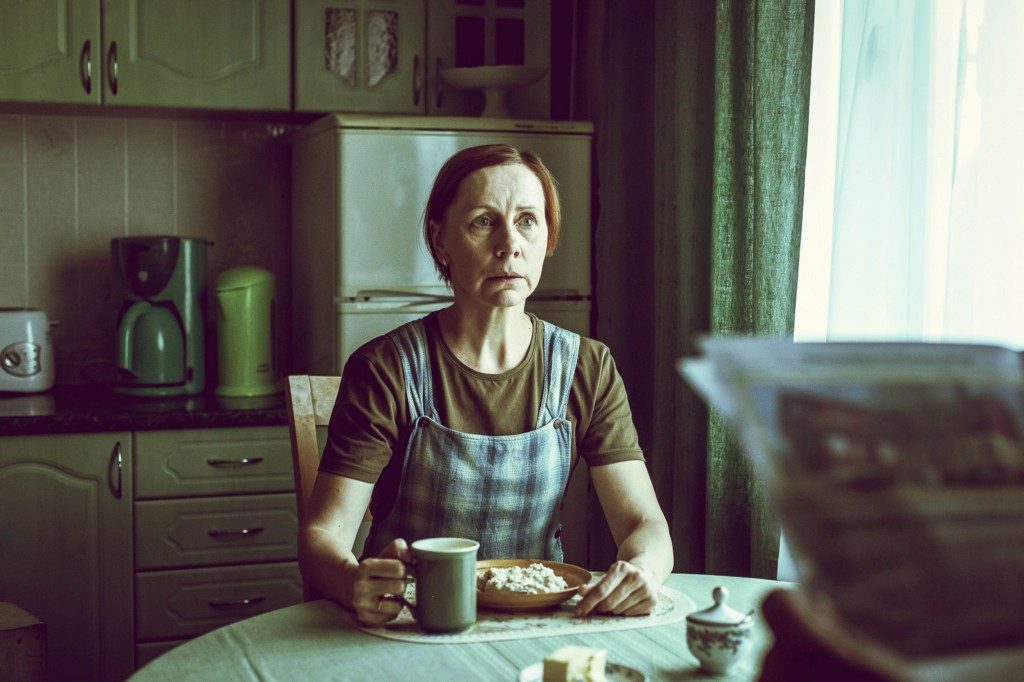Kadri Kõusaar is an Estonian writer and director. Her first feature, “Magnus,” premiered in 2007, and was the the first Estonian film ever to be selected for Cannes Film Festival, screening in the Un Certain Regard program. Her second feature, 2013’s “The Arbiter,” premiered internationally at the Karlovy Vary International Film Festival. Kõusaar wrote the bestselling novels “Ego,” “Free Rise,” and “Alfa.”
“Mother” is Kõusaar’s third film, and made its International Premiere at the 2016 Tribeca Film Festival. The drama is the official Foreign Language Oscar entry for Estonia for the 2016 Academy Awards
W&H: Describe the film for us in your own words.
KK: “Mother” is about a middle aged woman who feels that half of her life is over and she’s still not happy. There’s an exciting world out there, and she thinks she deserves to enjoy it. She is tired of making self-sacrifices, so she decides to do something selfish for the very first time in her life.
W&H: What drew you to this story?
KK: It’s a very humane, realistic story about loneliness, lack of love, and a quest for something better — a quest to be happier.
Although at first glance “Mother” seems to be a story about a woman jailed in her own home, taking care of her comatose son, there are many layers to this story — it’s partly a crime mystery to find out what happened to the son, and partly a drama of a woman disappointed in her life and marriage.
W&H: What do you want people to think about when they are leaving the theater?
KK: About the dangers of feeling desperate and lonely. And about the sacrifices parents make for their children. I hope they empathize with the mother’s character.
W&H: What was the biggest challenge in making the film?
KK: Almost the whole film takes place in the same house, and as a director it was a challenge to make it work so that it appears claustrophobic and monotonous, yet visually appealing and exciting to the audience.
Also it was a new experience for me because it marked the first time I was directing a script that I didn’t write. In a way that was liberating, as when you direct your own script you can get stuck in the details and fail to see the big picture.
On a personal level, it was a challenge to make a film about a mother and be physically apart from my son for the first time. He was eight months old during the shoot.
W&H: How did you get your film funded? Share some insights into how you got the film made.
KK: The film is produced and financed by the independent production company Meteoriit, with whom I’ve collaborated on all my films so far. The script won a national script competition and so it was quite a fast track to financing thanks to a special program that the Estonian Film Institute and national broadcasting had set up for the winners of the script competition. The budget was limited, but the film got to be made quickly.
In fact, it only took six months after the script was finished for the film to make its National Premiere.
W&H: What’s the best and worst advice you’ve received?
KK: The worst advice has been along the lines of, “Stay where you are. Don’t travel.”
The best advice usually comes from my brave and strong mother, and [from Rumi, who wrote,] “Don’t move the way fear makes you move.”
W&H: What advice do you have for other female directors?
KK: To keep on trying. Follow your own ideas and intuition — make films that move you personally.
W&H: Name your favorite woman-directed film and why.
KK: It’s hard to pick a single favorite. I’d say “The Night Porter” by Liliana Cavani, and “Ratcatcher” by Lynne Ramsay. Both are very nuanced, enigmatic, and powerful films.
Recently I enjoyed Maren Ade’s “Toni Erdmann,” a fellow Oscar contender. I like films that are both funny and tragic — sort of what I want to do with my own films.
W&H: Have you seen opportunities for women filmmakers increase over the last year due to the increased attention paid to the issue? If someone asked you what you thought needed to be done to get women more opportunities to direct, what would be your answer?
KK: Thankfully the subject of female directors has at least reached the media. But I don’t think there has been much progress. I remember clicking on a link about 20th Century Fox looking for female directors. They wanted female directors to direct a short based on their franchises — so it was actually just advertising masked as an opportunity. It wasn’t welcoming original ideas by female directors.
W&H: Describe how it feels to be the first woman director to represent Estonia at the Academy Awards.
KK: It’s a great honor! But our whole team is female — the producer, main actress, screenwriter, art directors, etc. I hope our little authentic film moves the Academy just like it has moved festival audiences around the world.







